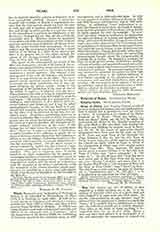

Vicari, HERMANN VON, Archbishop of Freiburg in Baden, b. at Aulendorf in Wurtemberg, May 13, 1773; d. at Freiburg, April 14, 1868. In 1789 he received tonsure at Constance and obtained a canonry, studied law until 1795 at Vienna, and after a brief practice began the study of theology. In 1797 he was ordained priest, and made ecclesiastical councillor and official of the episcopal curia at Constance. After the suppression of the diocese (1802) the Archbishop of Freiburg appointed him cathedral canon, in 1827 vicar-general, and in 1830 cathedral dean. In 1832 he was appointed Auxiliary Bishop of Macra, in 1836 and 1842 diocesan administrator, and in 1842 archbishop. As archbishop, Vicari endeavored to release the Church of Baden from the bonds of Josephinism and the principles of Wessenberg, and to defend its rights against the civil Government. To over-come prevalent religious indifference he emphasized the rights of bishops in training and appointing the clergy, and enforced discipline as regards mixed marriages. In a violent dispute with the Government over his prohibition of a Requiem Mass for deceased Protestant rulers he was victorious, as also in later contests about the schools. Though placed under police super-vision and held prisoner in his palace, his unwavering determination brought about the reorganization of Catholic life in Baden. He founded a seminary for boys out of his private means, established a theological house of studies, and appointed learned and ascetic men of sound religious convictions as professors at the ecclesiastical seminary. In numerous pastoral letters and exercises he animated the priests for their high calling, exhorted them to the faithful fulfilment of their duties, especially in the administration of the sacraments, and punished disobedience with great severity. He was energetic in his support of the secular authority, and in the revolutionary years of 1848-1849 he exhorted the Catholics to remain loyal.
PATRICIUS SCHLAGER

